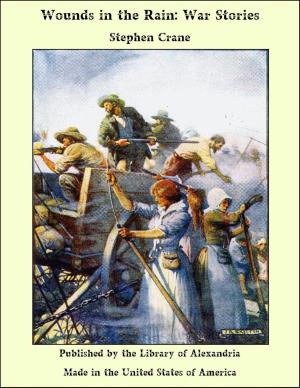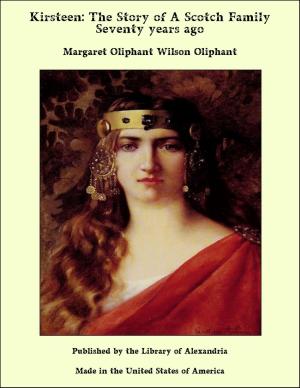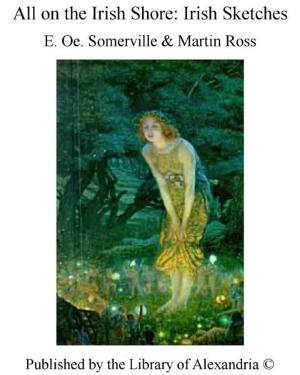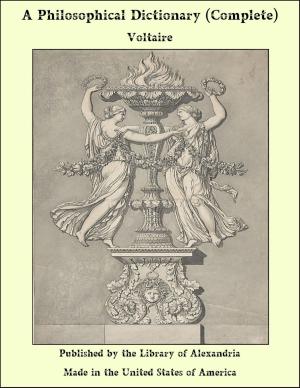The Life of Benjamin Franklin With Many Choice Anecdotes and Admirable Sayings of This Great Man Never Before Published by Any of His Biographers
Nonfiction, Religion & Spirituality, New Age, History, Fiction & Literature| Author: | Mason Locke Weems | ISBN: | 9781465539267 |
| Publisher: | Library of Alexandria | Publication: | March 8, 2015 |
| Imprint: | Language: | English |
| Author: | Mason Locke Weems |
| ISBN: | 9781465539267 |
| Publisher: | Library of Alexandria |
| Publication: | March 8, 2015 |
| Imprint: | |
| Language: | English |
DR. BENJAMIN FRANKLIN, president of the american philosophical society; fellow of the royal society of edinburgh, london and paris; governor of the state of pennsylvania; and minister plenipotentiary from the united states to the court of france, was the son of an obscure tallow-chandler and soap-boiler, of Boston, where he was born on the 17th day of January, 1706. Some men carry letters of recommendation in their looks, and some in their names. 'Tis the lot but of few to inherit both of these advantages. The hero of this work was one of that favoured number. As to his physiognomy, there was in it such an air of wisdom and philanthropy, and consequently such an expression of majesty and sweetness, as charms, even in the commonest pictures of him. And for his name, every one acquainted with the old English history, must know, that Franklin stands for what we now mean by "Gentleman," or "clever fellow." In the days of Auld Lang Syne, their neighbours from the continent made a descent "on the fast anchored isle," and compelled the hardy, red-ochred natives to buckle to their yoke. Among the victors were some regiments of Franks, who distinguished themselves by their valor, and still more by their politeness to the vanquished, and especially to the females. By this amiable gallantry the Franks acquired such glory among the brave islanders, that whenever any of their own people achieved any thing uncommonly handsome, he was called, by way of compliment, Franklin, i.e. a little Frank. As the living flame does not more naturally tend upwards than does every virtue to exalt its possessors, these little Franks were soon promoted to be great men, such as justices of the peace, knights of the shire, and Other such names of high renown. Hence those pretty lines of the old poet Chaucer— "This worthy Franklin wore a purse of silk
DR. BENJAMIN FRANKLIN, president of the american philosophical society; fellow of the royal society of edinburgh, london and paris; governor of the state of pennsylvania; and minister plenipotentiary from the united states to the court of france, was the son of an obscure tallow-chandler and soap-boiler, of Boston, where he was born on the 17th day of January, 1706. Some men carry letters of recommendation in their looks, and some in their names. 'Tis the lot but of few to inherit both of these advantages. The hero of this work was one of that favoured number. As to his physiognomy, there was in it such an air of wisdom and philanthropy, and consequently such an expression of majesty and sweetness, as charms, even in the commonest pictures of him. And for his name, every one acquainted with the old English history, must know, that Franklin stands for what we now mean by "Gentleman," or "clever fellow." In the days of Auld Lang Syne, their neighbours from the continent made a descent "on the fast anchored isle," and compelled the hardy, red-ochred natives to buckle to their yoke. Among the victors were some regiments of Franks, who distinguished themselves by their valor, and still more by their politeness to the vanquished, and especially to the females. By this amiable gallantry the Franks acquired such glory among the brave islanders, that whenever any of their own people achieved any thing uncommonly handsome, he was called, by way of compliment, Franklin, i.e. a little Frank. As the living flame does not more naturally tend upwards than does every virtue to exalt its possessors, these little Franks were soon promoted to be great men, such as justices of the peace, knights of the shire, and Other such names of high renown. Hence those pretty lines of the old poet Chaucer— "This worthy Franklin wore a purse of silk















